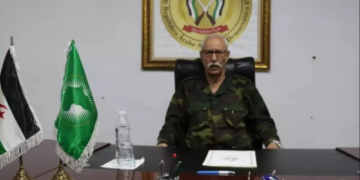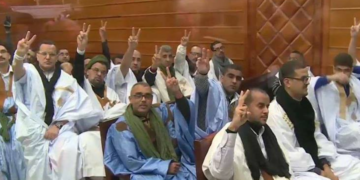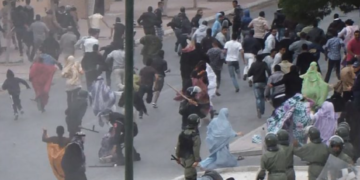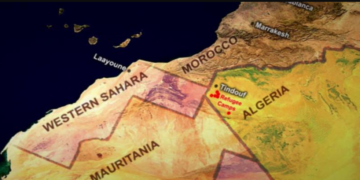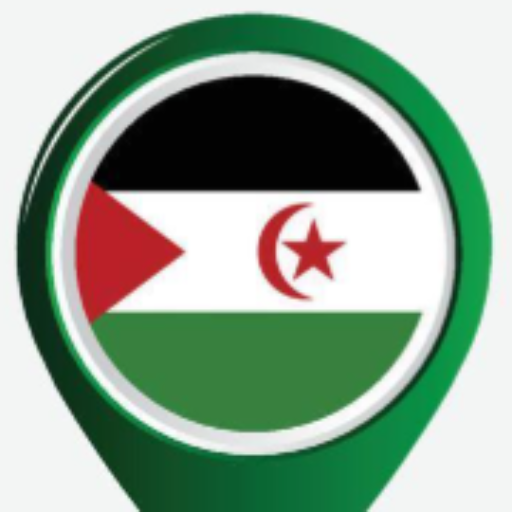While the Moroccan regime promotes its so-called “expanded autonomy” as a solution to the Western Sahara issue, Rabat and certain international actors overlook an undeniable truth: no solution can succeed if built upon an authoritarian system rooted in repression, suppression of freedoms, and monopolization of resources. The notion of a “political consensus” cannot be taken seriously within a state that neither acknowledges political plurality nor permits freedom of expression, and that violently suppresses dissenters in both Western Sahara and other regions like the Rif and major Moroccan cities.
The Core Issue
A Regime Incapable of Producing a Democratic Solution
The Moroccan regime, as evidenced by facts, cannot offer any genuine political solution because it is fundamentally undemocratic.
The current Moroccan constitution lacks a true separation of powers, placing the king above all institutions.
The executive branch is not genuinely accountable, with a nominal government and critical decisions made within the royal palace.
The judiciary lacks independence, the press is suppressed, and opponents are pursued, imprisoned, or exiled.
How can such a regime grant genuine autonomy? How can it respect the will of a people whose rights have been systematically denied for decades?
1. The Moroccan Constitutional Framework and Areas of Ambiguity
The 2011 Moroccan constitution acknowledges expanded regionalization but explicitly ties it to the “territorial integrity” of the kingdom, making any autonomy project conditional on full allegiance to the central authority.
The king holds supreme powers. He is the commander-in-chief of the armed forces. He appoints governors and judges. He possesses the authority to dissolve parliament, ensuring ultimate control in all circumstances.
The Constitutional Court is partially appointed by the king, rendering challenges or interpretations of autonomy laws tools in the hands of the central authority.
2. Potential Manipulation in Implementing Autonomy
Politically
Support for loyalist parties and manipulation of local elections through authority and financial influence.
Appointment of loyal tribal figures within new elites to ensure control over local decision-making.
Economically
Continued monopolization of natural resources such as phosphates, fishing, and tourism through central companies like OCP.
Implementation of major royal projects without genuine consultation with local populations.
Provision of development aid or project initiation only in cases of political loyalty.
Security-wise
Maintenance of intelligence and military forces in the region without local accountability.
Restriction of media freedom and protests under the pretext of national security.
Legally
Subsequent regulatory laws may limit actual powers on the ground.
Absence of any clear mechanism to review autonomy or conduct a future evaluative referendum.
Potential use of Article 59 of the constitution which allows declaration of a state of emergency to suspend autonomy at Rabat’s discretion.
3. Western Sahara
A Land of Resistance, Not Submission
Since Morocco’s occupation of Western Sahara in 1975, all forms of abuse have been inflicted upon Sahrawi civilians.
Suppression of peaceful demonstrations and persecution of human rights defenders like Sultana Khaya.
Media restrictions and denial of access to independent and international journalists.
Plundering of natural resources such as phosphates, fisheries, and solar energy without genuine involvement of the local population.
These actions mirror the repressive policies in Morocco’s Rif region, Jerada, Beni Mellal, and even Casablanca, where youths are imprisoned merely for demanding hospitals or quality education.
The Monarchy
An Unyielding Political and Economic Monopoly
A fundamental obstacle to any genuine solution is the structure of the Moroccan regime itself.
The monarchy controls the military, economy, security, judiciary, media, and religion.
Members of the royal family have established a network of financial and political interests that cannot be displaced without a significant confrontation with the center of power.
Any attempt to curtail the palace’s influence or regulate its powers is viewed as a threat to national unity and met with state of emergency declarations and treasonous propaganda.
This raises a critical question. How can one trust an autonomy project within a state that fails to ensure freedom of expression even for its own citizens? How can Rabat grant freedoms to the Sahrawis when it denies them to its own people?
4. Self-Determination
The Sole Legitimate Solution
Only a free and fair referendum under United Nations supervision can provide a just and lasting resolution to the Western Sahara issue.
The autonomy proposal without a referendum framework is merely a mechanism to freeze the conflict and legitimize the occupation.
As demonstrated by the experiences of formerly colonized nations such as East Timor, Namibia, and South Suda

